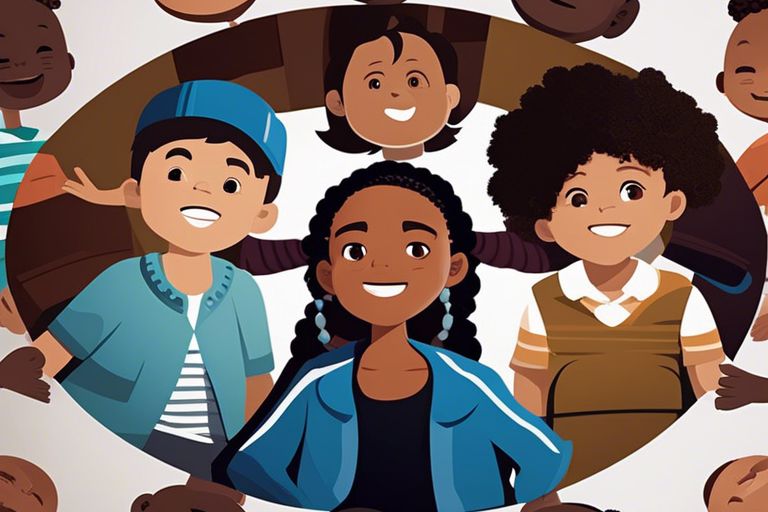Understanding how autism is perceived and addressed in minority communities is crucial for providing appropriate support and resources. Cultural perspectives play a significant role in shaping attitudes towards autism and can impact diagnosis, intervention, and acceptance within these communities. By delving into the cultural beliefs, practices, and barriers faced by minority groups in relation to autism, we can gain valuable insights into how to improve access to quality care for individuals with autism.
Key Takeaways:
- Importance of Cultural Understanding: Understanding the cultural perspectives within minority communities is crucial when exploring autism to provide appropriate support and interventions.
- Barriers to Diagnosis and Services: Minority communities may face barriers such as language, stigma, and lack of awareness leading to delayed diagnosis and access to services for individuals with autism.
- Need for Culturally Responsive Approaches: Tailoring support and interventions to incorporate cultural beliefs, practices, and languages is essential to effectively address the needs of individuals with autism in minority communities.
Prevalence and Diagnosis
Statistics of Autism in Minority Communities
Research indicates that autism spectrum disorder (ASD) is underdiagnosed in minority communities. Studies have shown that individuals from ethnic minority backgrounds may be less likely to be diagnosed with autism compared to their white counterparts. This disparity in diagnosis rates can be attributed to various factors, including cultural stigma, lack of access to healthcare services, and language barriers.
According to recent data, minority communities face unique challenges when it comes to receiving timely and accurate autism diagnoses. For example, cultural differences in how symptoms are perceived and understood can lead to misconceptions and misinterpretations. Additionally, a lack of culturally sensitive diagnostic tools and assessment measures can further complicate the identification of autism in minority individuals.
Challenges in Autism Diagnosis
Challenges in autism diagnosis within minority communities can stem from a variety of sources. One key issue is the lack of awareness and understanding of autism spectrum disorder among minority populations. This can result in delayed diagnosis and intervention, impacting the long-term outcomes for individuals with autism.
Moreover, stigma surrounding mental health conditions in many minority communities can prevent families from seeking help and support for their loved ones with autism. This can create barriers to accessing appropriate services and therapies that are vital for managing the symptoms of autism and improving quality of life.

Cultural Perspectives and Autism
Autism is a complex neurodevelopmental disorder that affects individuals worldwide, regardless of their cultural background. However, the way autism is understood and perceived can vary significantly across different cultures. It is crucial to explore cultural perspectives on autism to provide more inclusive and effective support for individuals within minority communities.
Understanding Autism within Different Cultures
Autism is often viewed through the lens of the dominant culture, which can lead to misconceptions and misinterpretations within minority communities. For example, in some cultures, behaviours associated with autism may be attributed to spiritual possession or punishment for past sins. This can result in delayed diagnosis and inadequate intervention, impacting the overall well-being of individuals with autism.
Furthermore, cultural differences in communication styles and social norms can contribute to the marginalisation of individuals with autism within minority communities. Understanding how autism is perceived within different cultures is essential for promoting acceptance and inclusivity for individuals with autism from all backgrounds.
Stigma and Cultural Beliefs
Stigma surrounding autism in minority communities can stem from deep-rooted cultural beliefs and misconceptions. In some cultures, autism may be seen as a source of shame for the family, leading to social isolation and discrimination against individuals with autism. This can hinder access to important services and support, perpetuating the cycle of stigma and misunderstanding.
It is crucial to address and challenge these stigmatising beliefs through cultural competency training and community engagement. By raising awareness and promoting positive representation of autism within minority communities, we can work towards creating a more inclusive and supportive environment for individuals with autism and their families.

Access to Services and Support
Disparities in Healthcare Access
Accessing healthcare services for individuals with autism from minority communities can present significant challenges. Cultural and language barriers often act as obstacles, preventing individuals and families from seeking and receiving the necessary support. Misunderstandings and stigma surrounding autism within certain communities can lead to late diagnoses and limited access to specialised care.
Moreover, limited awareness and underrepresentation of minority communities in autism research can further exacerbate disparities in healthcare access. This can result in inequitable treatment and unequal opportunities for individuals with autism from these communities.
Community and Family Support Structures
In minority communities, community and family support structures play a crucial role in the lives of individuals with autism. Traditional beliefs and practices within these communities often shape the ways in which autism is perceived and managed. This can result in unique approaches to supporting individuals with autism, which may differ from mainstream interventions.
Family members, such as parents, siblings, and extended relatives, form the backbone of support networks for individuals with autism in minority communities. They provide emotional and practical assistance, contributing significantly to the well-being and development of individuals with autism.
Community and family support structures not only provide essential care and understanding but also help foster a sense of belonging and acceptance for individuals with autism in minority communities.

Strategies for Improvement
Enhancing Cultural Competence in Autism Care
Developing cultural competence in autism care is crucial for effectively supporting individuals from minority communities. Healthcare providers need to acknowledge and respect diverse cultural beliefs, practices, and values when working with individuals with autism. This includes understanding how cultural factors may impact the perception of autism, treatment decisions, and communication styles. Training programmes should be implemented to educate professionals on the importance of cultural competence and provide them with the necessary skills to deliver culturally sensitive care.
Additionally, involving community leaders, cultural guides, and interpreters in the care team can bridge the gap between healthcare providers and individuals and families from minority communities. By creating a collaborative approach that values cultural diversity, it is possible to enhance the quality of care and support provided to individuals with autism.
Policy Recommendations and Advocacy
Effective policy recommendations and advocacy efforts are essential for improving autism services in minority communities. Governments and healthcare organisations need to allocate resources specifically towards addressing the unique needs of individuals from minority backgrounds. This includes funding for culturally tailored intervention programmes, outreach initiatives, and support services. Advocacy groups play a vital role in raising awareness, promoting inclusive policies, and lobbying for better access to autism services for minority communities.
Collaborating with policymakers, healthcare providers, and community organisations is key to driving systemic changes that foster equity and inclusivity in autism care. By working together to address the barriers faced by minority communities, we can create a more accessible and supportive environment for individuals with autism from all cultural backgrounds.
Exploring Autism in Minority Communities – Cultural Perspectives
Understanding autism within minority communities through cultural perspectives is essential to provide appropriate support and address unique challenges faced by individuals and families. Cultural beliefs, traditions, and social norms play a significant role in shaping perceptions of autism and accessing services. It is crucial to acknowledge and respect the diversity of experiences within different ethnic groups to ensure inclusive and effective interventions. Research and discussions addressing autism stigma and the role of ethnicity and culture can help break down barriers and promote acceptance and understanding.
For more information on autism stigma and the role of ethnicity and culture, visit Autism stigma and the role of ethnicity and culture.
FAQ
Q: What is the significance of exploring autism in minority communities?
A: Understanding how autism is perceived and managed in minority communities is crucial for providing culturally appropriate support and intervention.
Q: How do cultural perspectives influence the diagnosis of autism in minority communities?
A: Cultural perspectives impact how symptoms of autism are interpreted and whether diagnosis and intervention are sought in minority communities.
Q: What are some challenges faced by minority families in accessing autism resources?
A: Minority families may encounter barriers such as language differences, lack of awareness about services, and cultural stigma surrounding disabilities.
Q: How can cultural competence improve support for individuals with autism in minority communities?
A: By understanding and respecting diverse cultural beliefs and practices, professionals can provide more effective and inclusive care for individuals with autism in minority communities.
Q: What role can community organisations play in supporting autism awareness in minority communities?
A: Community organisations can help raise awareness, provide resources, and advocate for the needs of individuals with autism in minority communities.
Q: How can we address disparities in autism diagnosis and treatment for minority populations?
A: By promoting cultural sensitivity, increasing access to services, and collaborating with community leaders, we can work towards reducing disparities in autism care for minority populations.
Q: What are some cultural strengths and resilience factors in minority communities that can benefit individuals with autism?
A: Tight-knit family structures, community support networks, and cultural traditions can serve as sources of strength and resilience for individuals with autism in minority communities.






